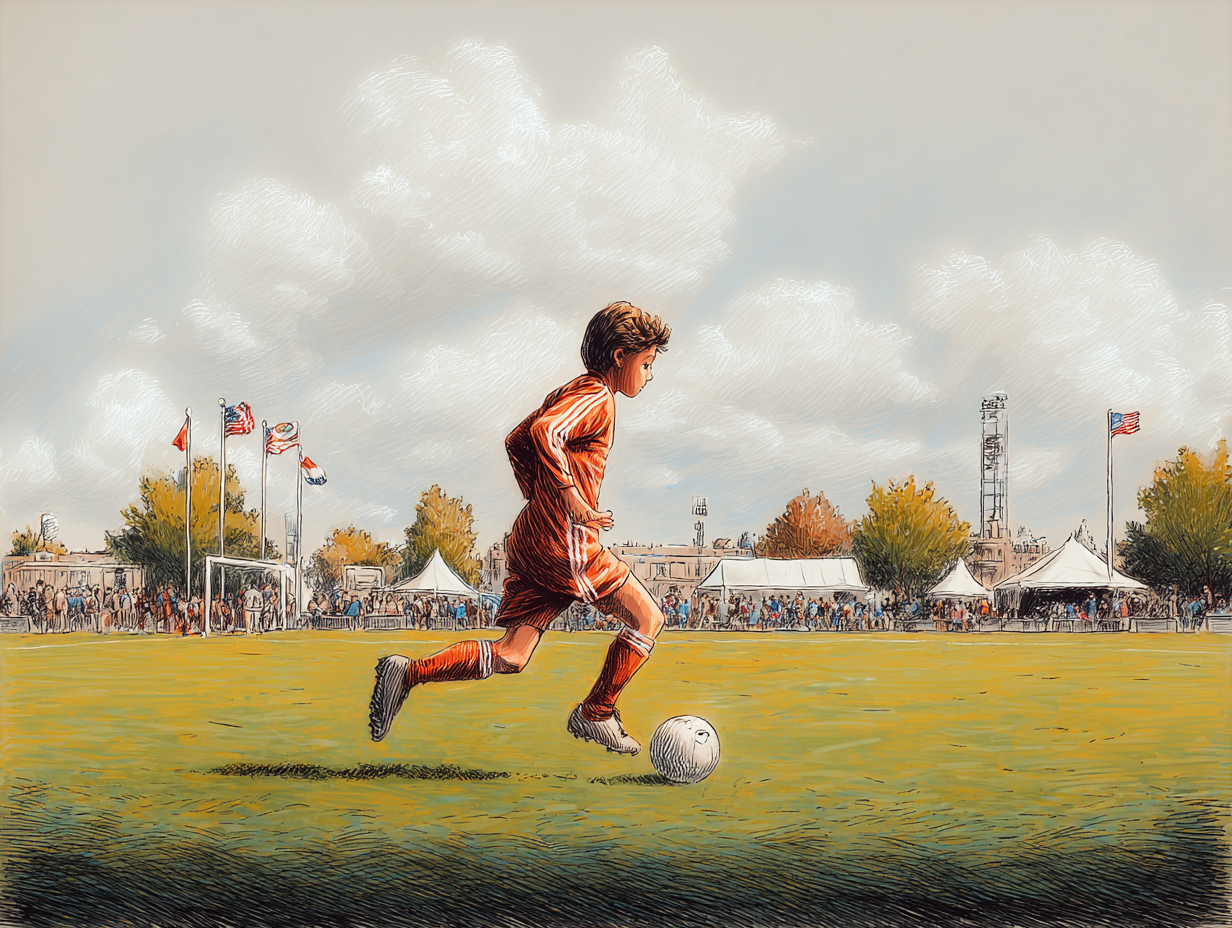Tournament Nutrition: What Youth Soccer Players Should Eat Before, During & After a Big Weekend
Learn what youth soccer players should eat before, during, and after a tournament weekend to maximize energy, recovery, and performance.

Tournament weekends are some of the toughest tests for youth soccer players. Multiple games in a short time frame put extra stress on young bodies, making nutrition and hydration critical for energy, recovery, and performance.
This guide, backed by sports nutrition science and real-world examples, explains exactly what to eat before, during, and after tournaments so players (ages 8–16) can perform their best without burning out.
Why Tournament Nutrition Matters for Young Athletes
Youth athletes are still growing, which means their nutritional needs are higher than non-athletic peers. Tournaments amplify energy demands with multiple high-intensity games, often under hot or humid conditions.
- Poor fueling → faster fatigue, reduced focus, and higher injury risk【Academy of Nutrition & Dietetics, 2018】.
- Proper fueling → sustained energy, quicker recovery, and better overall performance【ACSM, 2016】.
Key Nutritional Needs: Carbohydrates, Protein & Fluids
- Carbohydrates: The primary energy source. Youth athletes should get 50–60% of their calories from carbs on tournament days【ACSM Position Stand, 2016】.
- Protein: Essential for muscle repair and growth. Include lean protein every meal/snack.
- Fluids: Even mild dehydration (1–2% body weight loss) can impair performance【Journal of Athletic Training, 2015】.
24 Hours Before the Tournament: Building Energy Reserves
- Dinner the night before: Focus on complex carbs (pasta, rice, potatoes), moderate protein (chicken, fish), and low fat/fiber to avoid stomach upset.
- Avoid new foods: Stick to familiar, well-tolerated meals.
Game Day Breakfast: Fueling for Kickoff
Timing: 2–3 hours before first match.
Options:
- Oatmeal with banana & peanut butter
- Whole-grain toast with scrambled eggs & fruit
- Low-fat yogurt with granola and berries
- 👉 Aim for 1–4 g carbohydrate per kg bodyweight【ACSM Nutrient Timing Guidelines】.
Between Matches: Quick Refueling Strategies
- Goal: Replace carbs and fluids quickly without upsetting the stomach.
- Snack ideas: Fruit (orange slices, grapes), pretzels, sports drinks, low-fat granola bars.
- Avoid: Heavy, greasy, or high-fiber foods that slow digestion.
Hydration Guidelines for Youth Athletes
- Pre-game: 16–20 oz water 2–3 hours before play.
- During game: 5–9 oz every 20 minutes of activity.
- After game: Replace 16–24 oz fluid per pound of body weight lost【ACSM Hydration Guidelines, 2016】.
- Electrolytes are especially important in hot weather — consider sports drinks if sweating heavily.
Post-Tournament Recovery: Refuel, Rehydrate, Repair
The “3 R’s” matter most:
- Refuel: Carbs to replenish glycogen (rice, pasta, fruit).
- Rehydrate: Water + electrolytes to replace sweat losses.
- Repair: Protein within 30–60 minutes post-game (milk, turkey sandwich, protein shake).
Sample Tournament Weekend Meal Plan
Friday Dinner (Night Before): Grilled chicken, rice, steamed veggies, water.
Saturday Breakfast: Oatmeal, banana, peanut butter, water.
Between Matches: Orange slices, pretzels, sports drink.
Saturday Dinner: Pasta with tomato sauce & lean ground turkey, side salad, chocolate milk.
Sunday Breakfast: Whole-grain bagel with scrambled eggs, fruit, water.
Post-Tournament Snack: Smoothie with milk, banana, and protein powder.
Key Takeaways for Parents & Coaches
- Prioritize carbs, protein, and hydration — keep it simple and consistent.
- Plan snacks ahead to avoid poor food choices at concessions.
- Recovery starts immediately after the final game — don’t skip it.
References
- American College of Sports Medicine (2016). Nutrition and Athletic Performance Position Stand.
- Academy of Nutrition and Dietetics (2018). Youth Sports Nutrition Recommendations.
- Journal of Athletic Training (2015). Hydration and Performance in Young Athletes.
- International Society of Sports Nutrition (2017). Nutrient Timing Position Stand.
FAQ's
A balanced carb-focused meal 2–3 hours before kickoff, such as oatmeal with fruit or toast with eggs.
Offer quick-digesting carbs like fruit, pretzels, or a sports drink. Avoid greasy or heavy meals.
A mix of carbs and protein, such as chocolate milk, a turkey sandwich, or a fruit smoothie with protein powder.
Eat better. Feel better. Perform better.
Discover healthy recipes, plan meals, create shopping lists, and track macros — all in one app.

